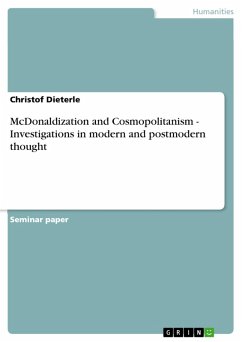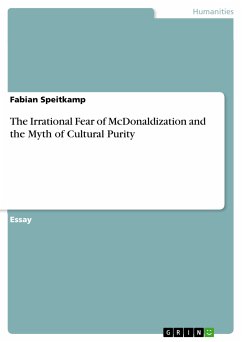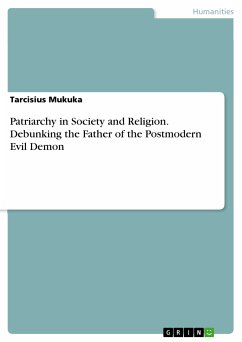Seminar paper from the year 2005 in the subject Sociology - Culture, Technology, Nations, grade: 1, University of Kassel (Fachbereich Gesellschaftswissenschaften), course: Introduction to Global Cultural Economy, language: English, abstract: The study of contemporary culture faces some fundamental problems in finding, both ontological and analytical, a clear distinction between modern and postmodern approaches to the question of how global culture can be understood. In the case of the two concepts of McDonaldization and cosmopolitanism, I try to show that such a distinction is not only redundant, but can also lead to difficulties in explaining the various cultural phenomena associated with these concepts that can be observed all around the globe on a daily basis. Obviously, choosing those two concepts to "build a bridge" between modern and post-modern theoretical approaches to global culture is not a random act. Current debates in the field of cultural sociology show that the concepts of McDonaldization and cosmopolitanism are mainly regarded as examples of modernity and postmodernity. The inherent rationality in the concept of McDonaldization is regarded as prototypically modern (Ritzer 1996, Berger/Huntington 2002, Rosenau 2003), whereas the concept of cosmopolitanism is mainly associated with change, complexity or post-territoriality, all of which are postmodern concepts (Hannerz 1996, Urry 2003, Hill 2000). This seemingly clear distinction between the aforementioned concepts will be challenged in this paper and some of the inherent features of McDonaldization and cosmopolitanism will be used to establish analytical links between modern and postmodern views on contemporary global culture. In order to establish connections between these two seemingly contradictory concepts, the most important step will be to get a clearer idea of their inherent features from a modern and from a post-modern perspective. Thus, in the chapter following these introductory remarks, I will put the concepts of McDonaldization and Cosmopolitanism under close scrutiny as far as their perception from the respective viewpoints is concerned.
Dieser Download kann aus rechtlichen Gründen nur mit Rechnungsadresse in A, B, BG, CY, CZ, D, DK, EW, E, FIN, F, GR, HR, H, IRL, I, LT, L, LR, M, NL, PL, P, R, S, SLO, SK ausgeliefert werden.









